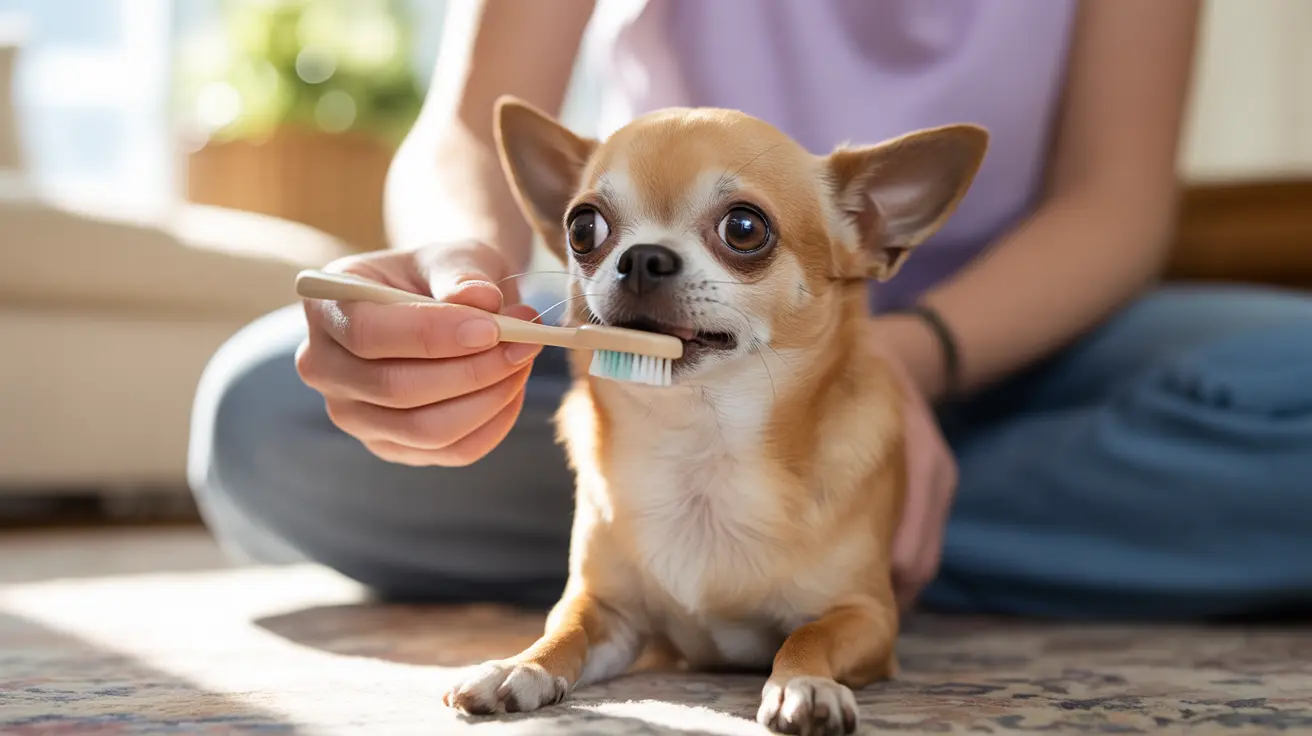Maintaining your dog's dental health is crucial for their overall well-being, yet many pet owners are uncertain about the proper frequency of tooth brushing. With studies showing that most dogs develop dental disease by age three, establishing the right oral care routine is essential for preventing serious health issues.
In this comprehensive guide, we'll explore the optimal frequency for brushing your dog's teeth, along with expert-backed techniques and tips to make the process easier for both you and your furry friend.
Recommended Brushing Frequency for Dogs
Veterinary dentists unanimously recommend daily tooth brushing as the gold standard for canine dental care. Just like humans, dogs benefit from having their teeth cleaned every day to prevent plaque buildup and maintain optimal oral health.
However, if daily brushing isn't feasible, aim for at least 3-4 times per week. This frequency can still provide significant benefits in preventing periodontal disease and maintaining good oral hygiene. Remember that some brushing is always better than none at all.
Factors That Influence Brushing Frequency
Age and Breed Considerations
Small breeds and senior dogs often require more frequent brushing due to their increased susceptibility to dental problems. Smaller dogs tend to have overcrowded teeth, making them more prone to plaque accumulation. Senior dogs may need extra attention as their immune systems become less efficient at fighting oral bacteria.
Diet and Lifestyle Impact
Dogs who primarily eat soft food typically need more frequent brushing compared to those on a diet of dental-friendly kibble. Additionally, dogs who regularly chew on appropriate dental toys may require less intensive brushing routines, though brushing should never be completely eliminated.
Establishing an Effective Brushing Routine
Getting Started
Begin by choosing appropriate dental care tools, including a dog-specific toothbrush and toothpaste. Never use human toothpaste, as it contains ingredients that can be harmful to dogs. Instead, opt for enzymatic dog toothpaste, which continues working even after brushing is complete.
Building Good Habits
Start slowly by introducing your dog to the taste of pet toothpaste and the sensation of having their teeth brushed. Begin with short sessions, focusing on the outer surfaces of the teeth, and gradually increase duration as your pet becomes more comfortable with the process.
Professional Dental Care Requirements
Even with regular home brushing, professional dental cleanings are essential. Most veterinarians recommend annual professional cleanings under anesthesia to address issues that brushing alone can't resolve, such as tartar below the gum line.
Dogs with existing dental problems or those prone to dental issues may need professional cleanings every six months. Always follow your veterinarian's recommendations based on your dog's specific needs.
Frequently Asked Questions
How often should I brush my dog's teeth to maintain good oral health?
Veterinarians recommend daily brushing for optimal results. At minimum, brush your dog's teeth 3-4 times per week to maintain good oral health and prevent dental disease.
What are the best techniques for brushing my dog's teeth comfortably and effectively?
Use gentle, circular motions focusing on the outer surfaces of the teeth. Start slowly, reward cooperation, and gradually increase brushing time as your dog becomes more comfortable with the process.
Can I use human toothpaste on my dog, or is there a specific type recommended?
Never use human toothpaste on dogs. Only use pet-specific toothpaste, as human toothpaste contains ingredients like xylitol that can be toxic to dogs.
How do I introduce my puppy to regular tooth brushing without causing stress?
Start by letting your puppy taste the dog toothpaste, then gradually introduce the toothbrush. Keep sessions short and positive, always rewarding cooperation with praise and treats.
Do dental chews and treats replace regular brushing, or are they just supplements?
Dental chews and treats are supplements to, not replacements for, regular brushing. While they can help reduce plaque buildup, they should be used alongside consistent brushing for optimal dental health.






